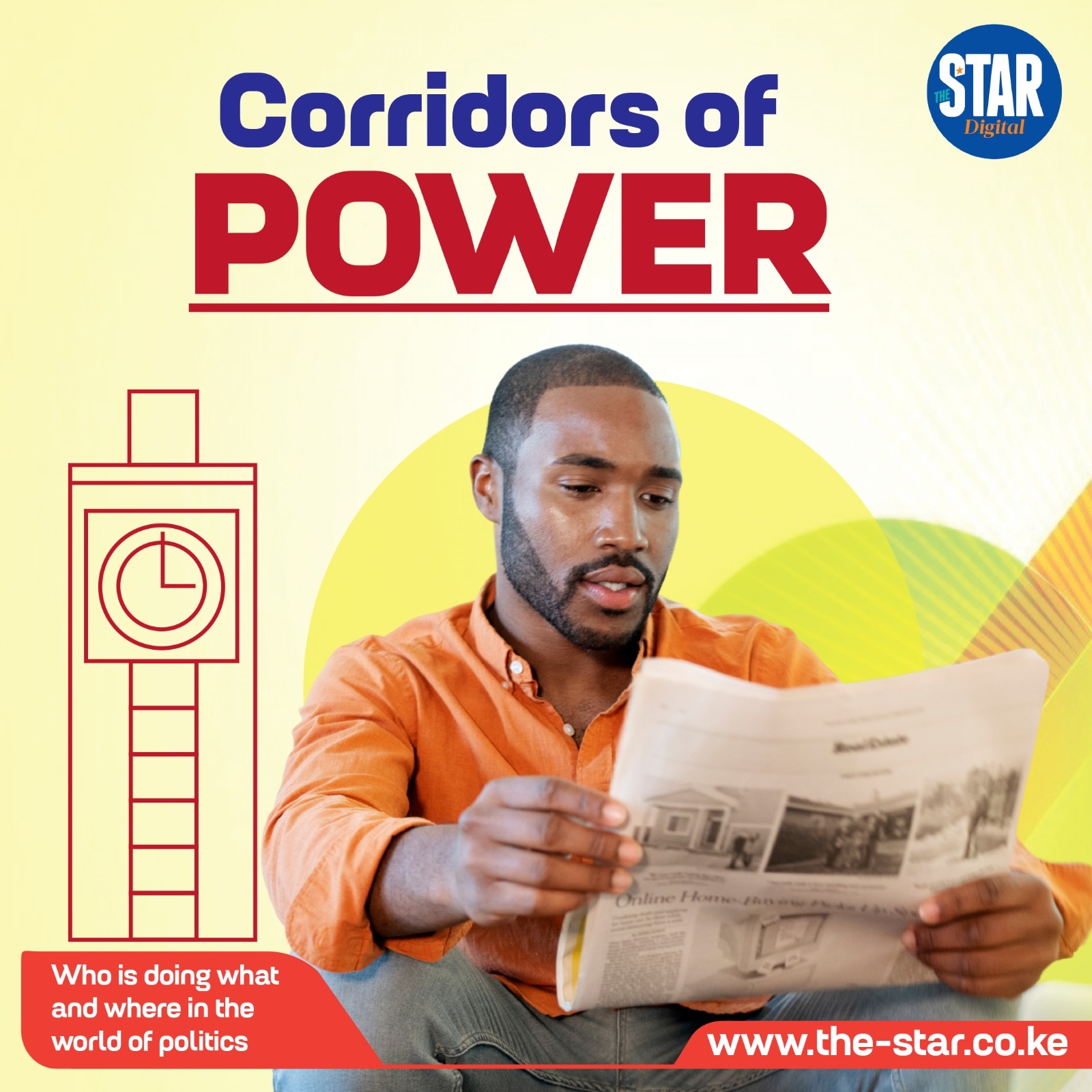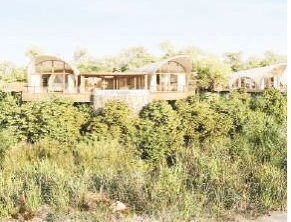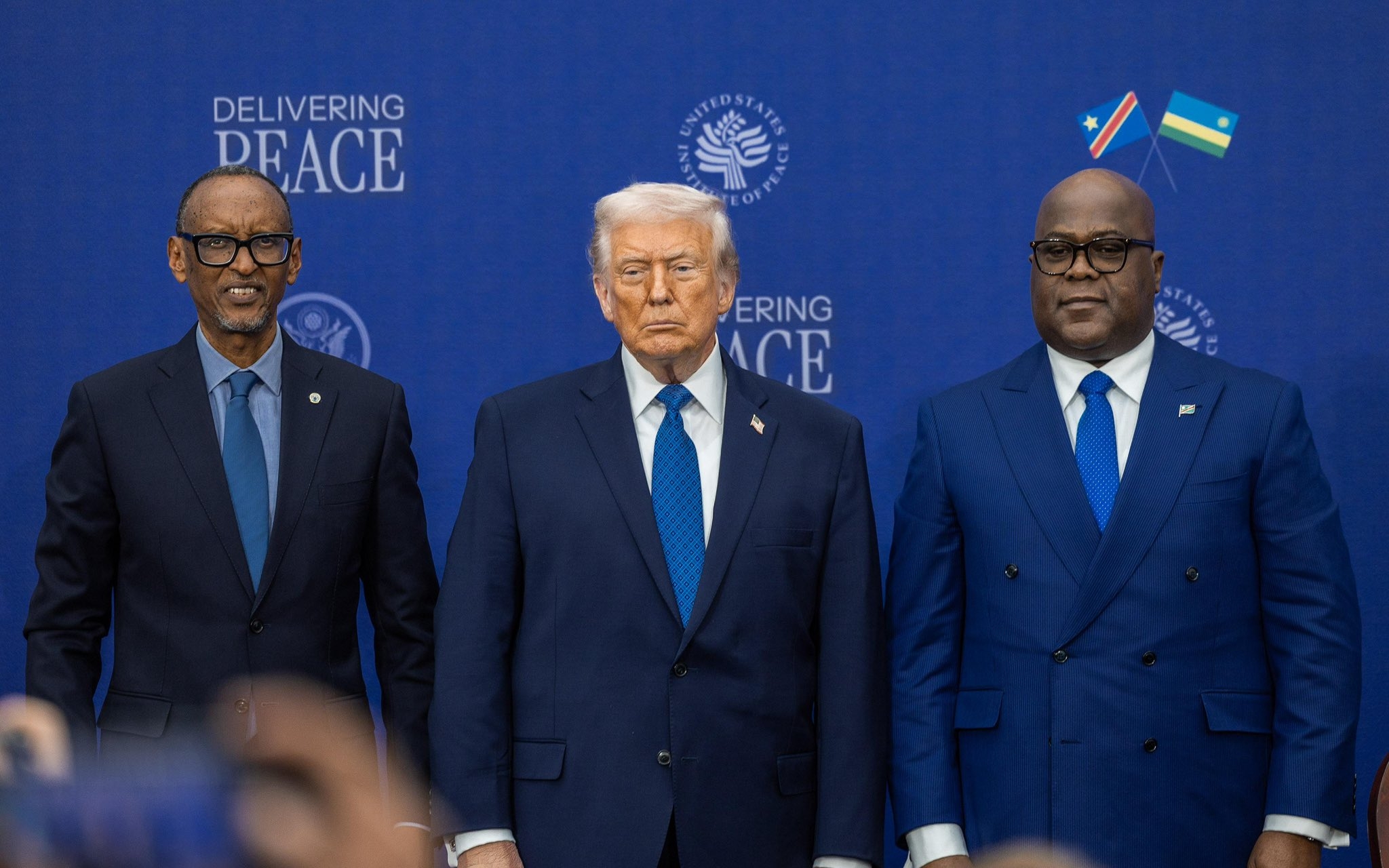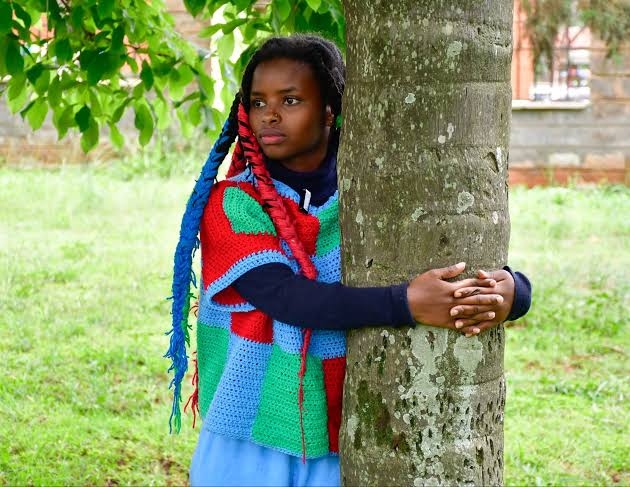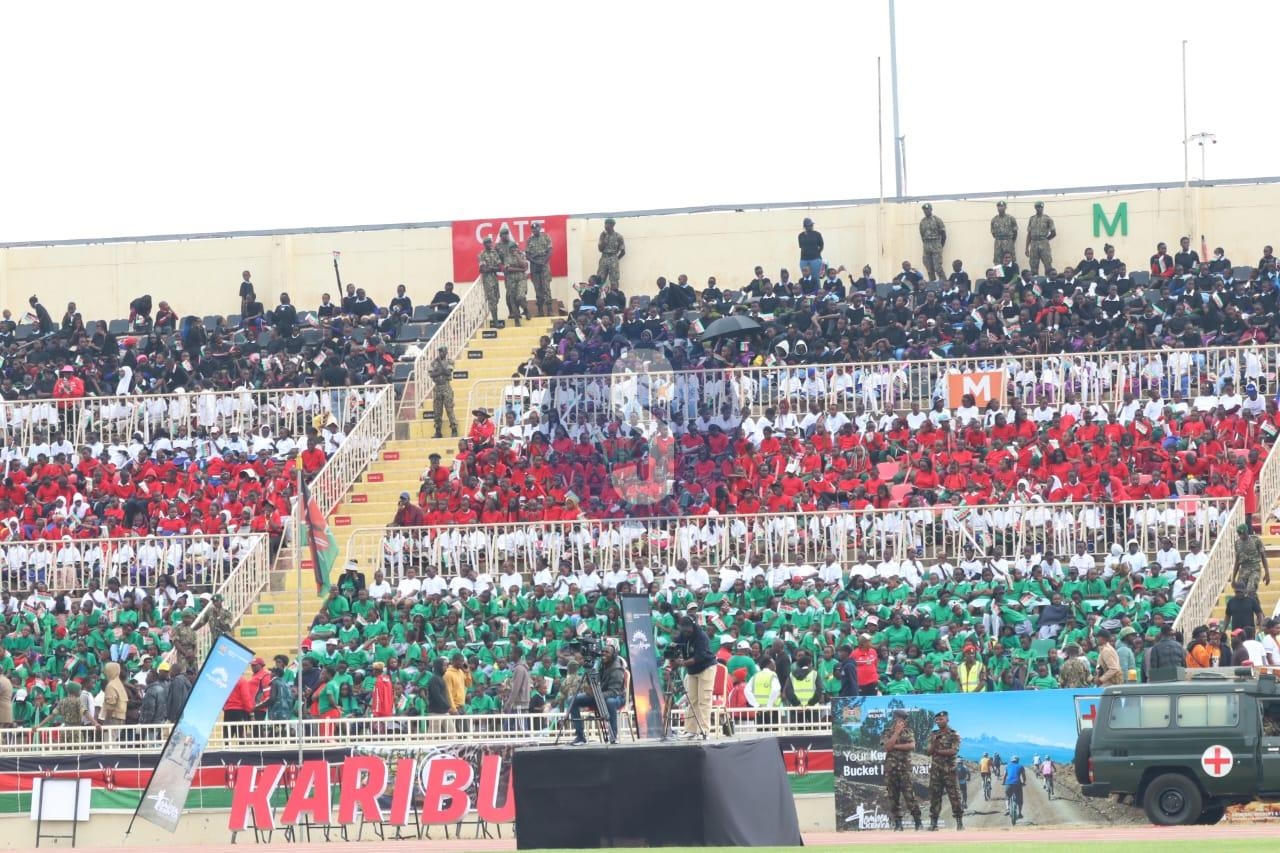The Embassy of the Kingdom of Morocco in Kenya has taken note of the "opinion article" entitled "People-people solidarities for liberation PanAfricanism must continue", published on January 21st, 2023, on the website of the daily newspaper "The Star", by Honorable Dr Willy Mutunga, Former Chief Justice of the Republic of Kenya.
The Embassy would like to make several clarifications regarding this "opinion article", given its many contradictions, misinformation, and fallacious arguments.
First, we wish to clarify that the "Polisario" is an armed group and not a ''liberation movement": the esteemed author stated that he knew "the struggles of the Saharawi people of Western Sahara since 1968 ", adding that the terrorist armed group of Polisario "was among the liberation organizations that Tanzania gave military and political base'.
It is always useful to remind the Honorable Dr Willy Mutunga that the "Polisario" armed group was created by the Kadhafi Regime of Libya. Furthermore, the United Republic of Tanzania has never supported-either this politically or militarily- this armed group.
Algeria has flagrant Algeria finances, Algeria harbours, Algeria arms, Algeria supports the "Polisario" terrorist armed group.
Thus, the comparison between the terrorist armed group of "Polisario" and the African and Latin American liberation movements is irrelevant.
There is evidence that the "Polisario" armed group is involved in the recruitment of child soldiers for terrorist purposes, torture, arbitrary detentions, misuse, and embezzlement of humanitarian aid intended for the sequestered people of Tindouf (South Algeria)and illegal trafficking.
This has been documented by several documents of the United Nations.
To this long list, the persistence of the artificial conflict over the Moroccan Sahara has generated a "marriage of interests" between the "Polisario" and the terrorist groups that are very active in the Sahel-Saharan
In this regard, it should be recalled that the links between members of the "Polisario" armed group and radical Islamist movements date back to the 1980s, have been For instance, AQIM has always recruited within the "Polisario" terrorist armed group, which has become one of the terrorist organization's main recruitment pools.
Thus, since 2008, the abduction of Foreigners has multiplied throughout the region, becoming one of the main expressions of terrorist activity in the North.
These kidnappings have been carried out by members of the "Polisario" terrorist armed group, adding to the signs of collusion between separatists and terrorists that were already numerous.
Also, the case of Adnan Abou Walid al-Sahraoui (An early Polisario activist whose real name is Lahbib Ould Abdi Ould Said Ould El Bachir), the leader of the jihadist group Islamic State in the Great Sahara, eliminated by Barkhane force in August 2021, can also be added to the long list of evidence proving that "Polisario" sponsors terrorism.
We also seek to clarify Mutunga's take on th Kingdom of Morocco's decolonization process where he stated that "Western Sahara's decolonization process was drastically interrupted on 31 October 1975 ". Again, this is misleading and
In 1912, the Moroccan territory was divided into several occupation zones. The central zone was under French The North and South under Spanish control and the city of Tangier was an international zone occupied by 12 foreign powers.
44 years later, the Kingdom of Morocco began to gradually recover its territorial integrity through international agreements negotiated with the colonial powers.
The Kingdom of Morocco has engaged, after its independence from France in 1956, negotiations with Spain, which led to the gradual regaining of some parts of its territory located in the South, namely Tarfaya in 1958, Sidi Ifni in 1969, and the region of Sakiat Al Hamra and Oued Eddahab from 1975, through the Madrid agreements.
The latter was duly recorded and registered in the United Nations on November 18'\ 1975 and approved by the General Assembly of the United Nations in its resolution.
Hence, the Kingdom of Morocco placed the Sahara, then under Spanish occupation, on the agenda of the 4th Committee in The "Polisario" did not exist at that time and was only created in 1973 by the Kadhafi regime to thwart Morocco's legitimate rights to its Sahara and impede its development.
The Moroccanness of the Sahara was confirmed by the International Court of Justice in its legal opinion of October 16'\ 1975, which recognized that the Sahara was not terra nullius at the time of its occupation by Spain and established the existence of the bonds of allegiance between the tribes of the Sahara and the Moroccan Kings.
This timeless principle of allegiance controls, since the dawn of time, the indefectibility of the links between the Moroccan people and the Alawite
On Morocco's commitment to a political solution, he referred to "the political and legal positions of the UN, OAU / African Union" regarding the Moroccan Sahara, knowing that this issue is examined exclusively within the UN Security Council framework, under Chapter VI (disputes settlement).
The Honorable Willy Mutunga did not refer to the evolution of the matter in the UN Security Council, nor to the ground's reality and underlined that "The comprador leadership of this Kingdom has sought to subvert the legal and political positions of the UN. AU, and ICJ".
First, the UN Security Council has never referred to this regional dispute as a "decolonisation issue".
Second, the Honorable former chief Justice should know that the growing international support of important and influential countries for the Moroccan Autonomy Initiative proposed in 2007, the opening of more than thirty General Consulates in Laayoune and Dakhla, the non-recognition of a so-called "state" created by Algeria by more than 84% of UN member States, as well as the economic and social development of the Southern Provinces, are all illustrations of this highly positive dynamic.
It is important to recall that in 2007, the Kingdom of Morocco has adopted a positive and constructive dynamic, by answering the Call of the United Nations Security Council for a political solution and by submitting an initiative for the negotiation of an autonomy status, within the framework of the Kingdom's sovereignty and national
The last resolution (2654) of the UN Security Council about the Moroccan Sahara is a confirmation of the framework of the political process that assumes a legal, political, and moral responsibility in the search for a just, lasting, and mutually acceptable political
Thus, the resolution called (in its operative paragraph n°3) "Morocco, Algeria, Mauritania, and the 'Polisario' to remain committed to this process throughout its duration, in a spirit of realism and compromise.
We note, moreover, that the resolution systematically cites Algeria every time it refers to Morocco. In this case, why does not the esteemed author refer to Algeria-even once- in his "opinion article"?
Finally, the resolution (2654) is a confirmation of the finality of the political process, since the resolution reiterated (in its operative paragraph n°2) that the political solution should be "realistic, pragmatic, lasting, and based on compromise", which can only be the Moroccan Autonomy Initiative, the preeminence of which was again reaffirmed by the Security.
In addition, the resolution (in its operative paragraph 8) expressly asked the "Polisario" to allow the resumption of the safe and regular resupply of MINURSO to guarantee the sustainability of the Mission's presence.
Thus, the Security Council denounced the continued violations by "polisario" of the ceasefire in the east of the berm, in contrast to the Kingdom's constant cooperation with the UN Mission.
Concerning the AU position on the matter, Decision 693, adopted at the 31st Summit of the AU held in Nouakchott in July 2018, puts the Moroccan Sahara issue back into its appropriate framework, that of the United Nations and allows, therefore, to immunize the AU against any inappropriate attempt to divert the path of unity and
Moreover, Decision 693 has enshrined the exclusive competence of the United Nations in the management of the conflict over the Moroccan Sahara and excluded any other parallel process to that of the United Nations and stressed the AU's support to the UN-led efforts.
We also differ with the author on the myth of "natural resources exploitation" where he accused the Kingdom of Morocco of" exploiting the natural and mineral resource!' of the Sahara and adding that the "natural and mineral resources are undeniable! being used to finance the Kingdom's illegal war and illegal occupation of Western Sahara".
Once again, the author makes false accusations without evidence and without taking into consideration the reality of the Southern Moroccan
First, the Southern Provinces are an integral part of the Kingdom of Morocco and its development Morocco has every right to develop these provinces and to seek the full social and economic emancipation of its citizens.
Second, for the mining resources, the Southern Provinces account for only 1.6% of proven reserves of phosphates in Morocco, knowing that the Kingdom holds 75% of the world The phosphate resources of the region of Boucraa are estimated at 1.1 billion m3.
Phosboucraa extracts between 2.5 and 3 million tons per year from these resources, which constitutes only 6% of the national production. The investments made by the OCP group at Boucraa, during the period from 1976 to 2010, are about 2 billion OCP has recorded operating losses for 27 years.
It is only in 2008 that Phosboucraa began to become profitable.
Thus, revenues are invested in human capital development in this region at the benefit of the inhabitants.
The projects in the Southern provinces launch a real socio-economic dynamic, create jobs and investment opportunities, and provide the region with the infrastructure and facilities it needs.
Morocco is currently funding massive developmental projects in its Southern Provinces with a budget cover of more than MAD 77 billion ($7.1 billion).
In fact, for each dirham of revenue collected from the region, Morocco invests 7 dirhams in its Sahara.
In terms of human capital indicators, the Southern Provinces are better provided for the following :
Over the period 2001-2016, the GDP per capita at the level of the Southern provinces (on average 28,800 dirhams per year) exceeds the national average by 26%. The Laayoune-Saquia Al Hamra region has the highest GDP per capita nationwide, exceeding that of the Casablanca Settat region ;
Also, the gross enrollment rate of people aged 6 to 22 years, all levels combined, increased from 67.4% in 2004 to 81.8% in 2014.
This rate has grown, meanwhile, from 56.1% to 74.9% nationally; The average number of years of education of the population aged 25 years and over increased from 3.4 years in 2004 to 4.6 years in 2014, exceeding the national average of 4.4 years; The proportion of people (in a population aged 25 years and over),with at least an educational level equivalent to or higher than a college education, increased from 23.8% in 2004 to 33.3% in 2014 against, respectively, 23% and 30.4% at the national level;
School life expectancy, defined as the average number of years of study that a schooled individual expects to spend in the education-training system, evolved from 11.4 years in 2004 to
13.5 years in 2014. The latter value exceeds the national average expectation of 12 years in 2014.








